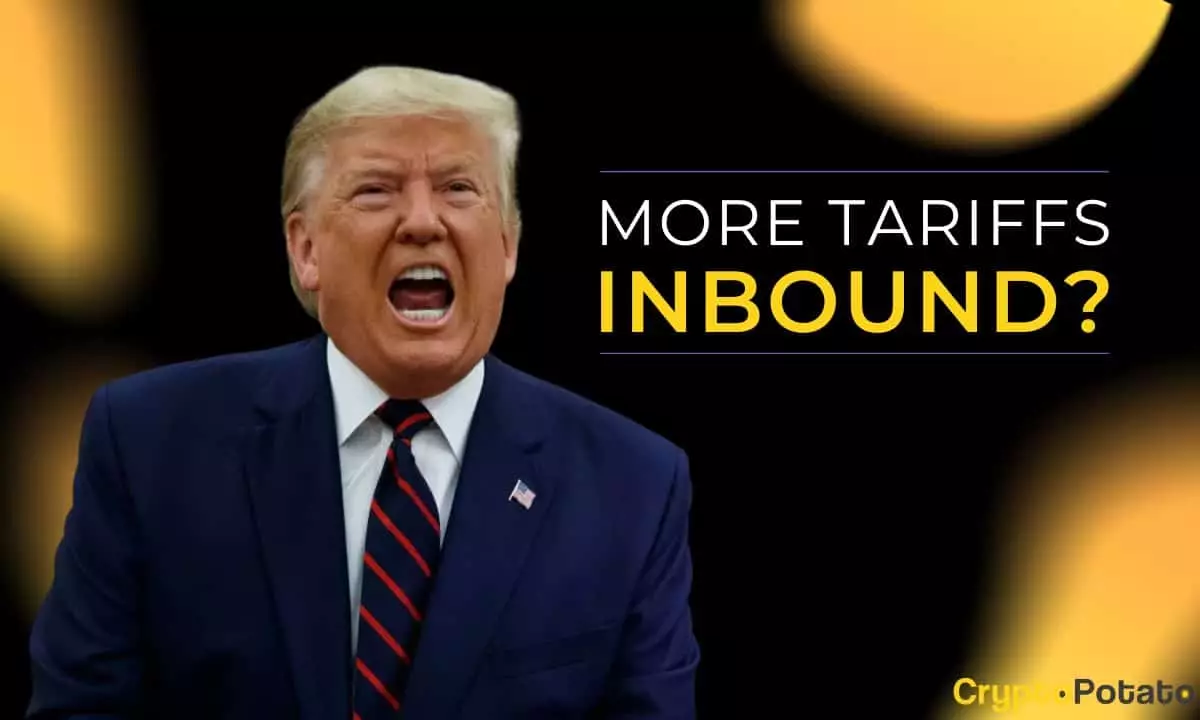In the world of economics, few events send ripples through global markets like the announcement of new tariffs. On April 2nd, 2023, President Donald Trump proclaimed “Liberation Day,” an ironic title for what turned out to be the beginning of a troubling trade war. The immediate aftermath reflected chaos—global stock markets plummeted as investors scrambled to gauge the implications of these new tariffs. With the stakes rising, the sense of uncertainty stoked fears of heightened tensions and potential recession.
Tariffs: Tools of Retribution
The decision to impose tariffs ranging from 10% to a staggering 46% on various nations was framed as a response to an alleged trade deficit. However, such an aggressive stance raises significant concerns about protectionism’s long-term consequences. The pricing of imports under a 10% universal tariff, coupled with steep nationalized rates—34% for China and 24% for Japan—appears more punitive than reciprocal. This forces one to question whether these policies aim to elevate American economic standards or simply cater to nationalist sentiment.
Indeed, the term “reciprocal” seems almost disingenuous. By instigating a trade war under the guise of patriotism, Trump risks alienating essential economic partners and sacrificing the principles of fair trade. His declaration has not merely drawn ire but has also led China, for instance, to retaliate with its own import taxes and broader economic reprisals, including censorship of American firms. This is the starting shot of a tit-for-tat that could devastate industries on both sides.
Market Reactions: A Ripple Effect
The ramifications of Trump’s tariffs reverberated swiftly through stock markets across the globe. In just a week, over $5 trillion in market capitalization vanished like smoke, reminiscent of the haunted memories of the COVID crash. Not even the technology sector—a once unassailable bastion of growth—was spared. The plummeting values of tech giants such as Apple and Microsoft captured headlines, signaling a crisis of confidence in American enterprise.
The S&P 500, Dow Jones, and Nasdaq, indices that often dictate market sentiment, plunged into a bear market as a direct consequence of these policies. One must question the wisdom of pursuing aggressive tariffs when the losses echo through the very fabric of American capitalism. Investors who banked on a stable economic landscape suddenly find themselves navigating an unpredictable and hostile environment.
The Cryptocurrency Quandary
In an interesting twist, the world of cryptocurrency remains relatively stable amidst the chaos, with Bitcoin experiencing only a minor decrease. This deviation suggests a shift in how investors perceive the market’s foundational assets. Some experts are now arguing that Bitcoin, long considered a speculative venture, is gradually emerging as a legitimate asset class, seemingly uncorrelated with traditional assets.
This phenomenon calls into question the very rationale behind both tariffs and conventional economic wisdom. If Bitcoin’s stability—amid a dive in stock prices—indicates a growing distrust in government monetary policy, it may be time for policymakers to consider a pivot. A distinction is emerging, separating gold and Bitcoin as safe-haven investments. The ongoing turbulence may encourage a deeper reevaluation of value in the realm of cryptocurrencies, but that depends heavily on market sentiment.
Global Impact: The Future of Trade Relations
Internationally, reactions to America’s aggressive posture vary widely. While some nations have chosen the path of diplomacy, such as the EU, reaffirming their commitment to negotiation, outright hostility bubbles beneath the surface. The next steps will be crucial; any miscalculated moves could escalate tensions, sending the United States spiraling into a deeper economic abyss.
Maroš Šefčovič, the EU trade commissioner, emphasized a willingness to engage in “frank exchanges.” However, history tells us that economic sanctions seldom yield satisfactory resolutions. With nations taking defensive stances, the idea of leveraging tariffs as tools of negotiation seems dangerously miscalculated. The urgent need for compromise appears evident, yet the political climate fosters disunity more than collaboration.
Economic theory suggests that free trade typically spurs growth by promoting competition. When protectionist policies trump globalization, the risk of stagnation looms large. The question we must grapple with now is: Are we willing to foot the bill for hubris dressed up as patriotism?















